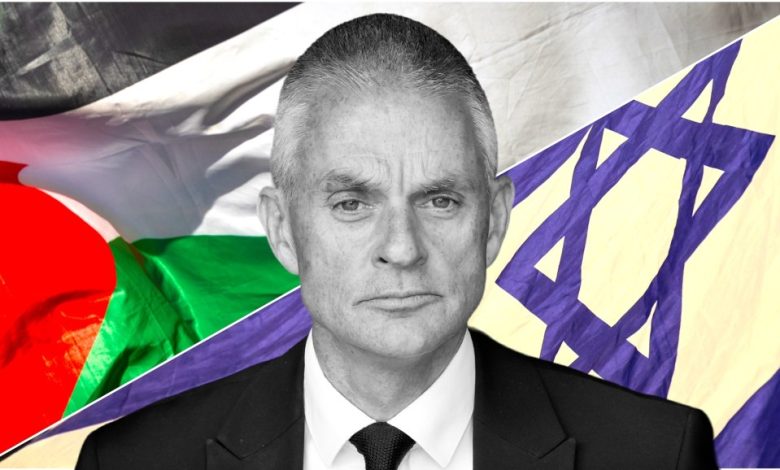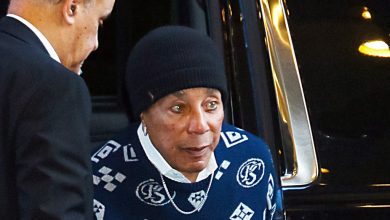BBC Staff Revolt Over Gaza Coverage: Leaked Messages Reveal Internal Dissent

Leaked internal messages reveal a significant revolt among BBC staff regarding the broadcaster’s coverage of Gaza, highlighting concerns about bias and transparency.
Leaked Internal BBC Messages Reveal Staff Revolt Over Gaza Coverage
EXCLUSIVE: BBC employees have expressed open dissent regarding the UK national broadcaster’s coverage of Gaza during an all-staff meeting earlier this month, according to leaked messages obtained by Deadline.
Staff Concerns Raised at Town Hall Meeting
Tim Davie, the BBC’s director general, hosted an “ask me anything” event with employees in June, where he faced tough questions about editorial decisions related to the Israel-Hamas conflict.
Four sources informed Deadline that inquiries and remarks concerning the crisis were among the most “upvoted” by staff, enhancing their likelihood of being addressed by Davie. BBC News CEO Deborah Turness also fielded questions during the event.
Accusations of Bias and Censorship
The leaked messages, some accusing the BBC’s output of bias towards Israel, surfaced amid internal frustration over the corporation’s decision to scrap the documentary Gaza: Doctors Under Attack.
The town hall meeting occurred before the official cancellation of Doctors Under Attack (also known as Medics Under Fire), yet the film was a recurring topic in several inquiries.
One staff member asked, “Why was the decision made not to air Gaza: Medics Under Fire? The lack of transparency regarding these decisions is extremely concerning.”
Another added, “Why are you not permitting the release of Gaza: Medics Under Fire? Are you aware this has adversely affected the BBC’s reputation and its ability to cover Palestinian stories?”
Internal Struggles and Public Perception
Adam Fleming, host of the BBC’s Newscast podcast, moderated the town hall. He received praise for acknowledging the questions and presenting them to Davie early in the meeting.
Davie reportedly told staff that the conflict is complex to report, citing strong sentiments from both the Jewish community and those sympathetic to the Palestinian cause.
One employee expressed reluctance to disclose their employment at the BBC “for fear of arguments,” stating they are frequently confronted about the BBC being perceived as a propaganda machine biased against Gaza.
Another message read: “I am deeply concerned about the harm being done to the BBC’s reputation due to its coverage of events in Palestine. While I appreciate our editorial guidelines aimed at balance and impartiality, I feel we are failing.”
Concerns Over Documentary Censorship
A seasoned BBC journalist compared the corporation’s handling of Gaza coverage to being in an “abusive relationship,” feeling pressured to ignore the realities surrounding them.
See More ...
Another insider speculated that the BBC abandoned Doctors Under Attack to avoid another documentary crisis as discussions about charter renewal intensify.
The BBC Eye Investigations project intended to highlight the challenges faced by medics in Gaza but was halted in April following the controversy surrounding Gaza: How to Survive a Warzone, a documentary narrated by the child of a Hamas minister.
A BBC investigation into How to Survive a Warzone is expected to be released soon. Peter Johnston, the BBC’s director of editorial complaints and reviews, is scrutinizing the failings that led to the film’s airing.
The UK’s Jewish community expressed outrage over the BBC screening a film narrated by a child with undisclosed Hamas ties. Others argued that the decision to withdraw How to Survive a Warzone was an act of “censorship” aligning with Israel’s agenda.
Last week, the BBC confirmed that Doctors Under Attack would not proceed, with rights to the project returned to Basement Films, the production company led by former Channel 4 News editor Ben de Pear.
In a statement, the BBC indicated that the film risked “creating a perception of partiality.” While they did not elaborate, Deadline understands that executives were concerned about comments made by the filmmakers involved.
De Pear criticized Davie, labeling him as “just a PR person” who has interfered in editorial decisions, leading an organization that is “failing” in its duty to accurately report on the Gaza crisis.
On the same day, journalist Ramita Navai, involved in Doctors Under Attack, appeared on Radio 4 and described Israel as “a rogue state committing war crimes and ethnic cleansing, mass-murdering Palestinians.” She asserted this was not merely an opinion but a professional assessment based on her journalism.
The BBC stated: “We have produced powerful coverage of this conflict. Alongside breaking news and ongoing analysis, we have created award-winning documentaries such as Life and Death in Gaza and Gaza 101. We have also investigated allegations of abuse against Palestinian prisoners and Israel’s assaults on Gaza’s hospitals. Just today [June 20], we are presenting a compelling piece of longform journalism capturing the final two weeks inside a Gaza hospital before its closure.”




